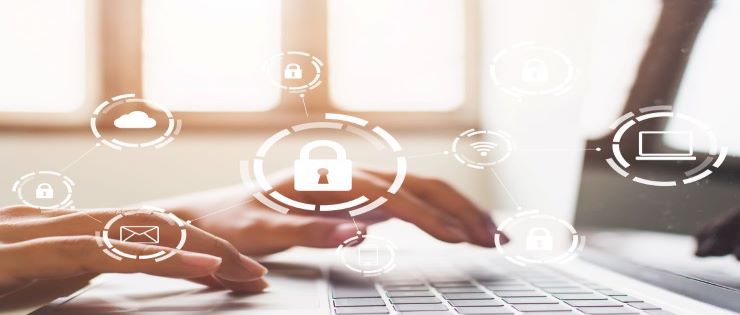
Your personal information is valuable. Always question why it’s needed before making the decision to share it.
Social Media
By regularly checking your privacy settings, you can control who has access to your profile and personal information, like birth dates, photos or even your current whereabouts.
Think twice before bragging about your amazing upcoming vacation or posting pictures while on a weekend trip. You never know who could see this information and use it to break into your home.
Mobile Devices
Always use security settings to secure your phone. More than 8 in 10 Australians use a smartphone and increasingly use the mobile devices to store personal information.
By setting up device locking settings and using device tracking apps or functions, you can help reduce the risk of unauthorised access to your personal records and accounts.
Passwords
Use a different password for each account. A recent survey shows almost six in ten people use the same password across all of their devices and accounts.
Don’t share your passwords with anyone. More than four in ten people admitted to sharing their passwords in a recent poll.
Rather than using a mix of random characters, create a passphrase by stringing at least four words together that are meaningful only to you.
Always ask why, how and who
Don’t give out your personal information unless you are comfortable with how it is going to be used.
If you don’t think an organisation or provider should collect the information they are asking for, ask why they want or need it. This helps you to understand how your personal information may be used and whether it may be given to someone else.
Credit Providers
It’s your responsibility to make sure credit providers have your current address details. This means that if your contact details change (for example, if you move house or open a new email account) you should contact all your credit providers and provide them with your new details.
You can access a free copy of your credit report once a year from the Office of the Australian Information Commissioner and CreditSmart to ensure you’re on top of any suspicious activities.
Use security software
Using security software on your computer is one of the simplest ways to protect yourself and your privacy. Good computer security includes installing reputable anti-spyware, anti-virus scanners and firewall software. You should also keep your online security tools up to date.
Don’t leave your personal information lying around
Properly destroying personal information before throwing it out will help to protect you from potential identity theft. This includes shredding documents and physically destroying expired banking and government-issued cards.
Beware of scams
Be careful — there are many online, email and phone scams out there. If you’re not expecting a request to update information, to get a refund, or to win a prize, don’t give out your personal information until you’re sure it’s legitimate and above board.
*Some information sourced from Office of the Australian Information Commissioner